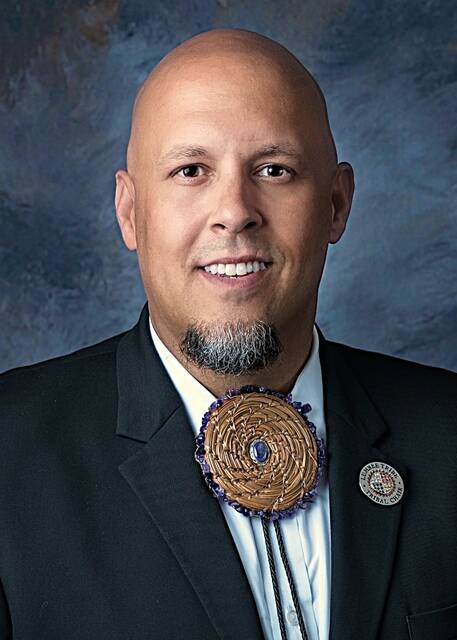NIH Launches Program to Support Tribal Communities
PEMBROKE — The Lumbee Tribal Council on Thursday accepted a contract awarded by the National Institutes of Health’s Other Transactions Division for substance abuse and pain research.
The contract covers 11 and a half months of work and costs of $608,042.The National Institutes of Health (NIH) has launched a program to help Native American communities lead public health research to address overdoses, drug use, pain, and related factors such as mental health and wellness.
The seven-year initiative, totaling approximately $268 million, supports research projects led directly by organizations that serve tribes and Native American communities and was established in direct response to priorities identified by tribes and Native American communities.
Health and Human Services Commissioner Cherie Beasley worked with the team to apply for the funding.
This is the first time the Lumbee Tribe has received an award from the National Institutes of Health and the first time they have conducted a project focused on collecting research data to improve the health of tribal members.
“This two-year planning project has four objectives: to establish a Substance Abuse Research and Community Advisory Committee; to develop a substance abuse data dashboard and storyboard for the Lumbee Tribe; to develop a research training protocol and lay the foundation for adapting pain management to Indigenous culture,” Beasley said.
She emphasized that “this data could be used to secure funding for drug dependency projects, with the overall goal of offsetting opioid abuse in our communities.”
The Lumbee project, titled “Building iCRISP: An Indigenous Community-Informed Research Infrastructure Addressing Substance Abuse and Pain Management,” is part of a collaborative agreement between the National Institutes of Health (NIH) and the Lumbee Tribe and will involve collaboration with other organizations including UNC-Chapel Hill, Wake Forest University and School of Medicine, UNCP, and CORE.
Dr. Ronnie Bell, an active member of the Lumbee Tribe, was instrumental in securing this award. Dr. Bell and Dr. Beasley will leverage existing community and academic research resources and collaborate with interdisciplinary groups to understand and address underlying factors related to substance abuse and pain management among the Lumbee Tribe.
“We are honored to have the opportunity to work with the Lumbee Tribe to address these important health issues,” said Bell, the Fred Eshelman Distinguished Professor and director of the Division of Drug Outcomes and Policy (DPOP) at the University of North Carolina Eshelman School of Pharmacy.
Lumbee Tribal Chief John Rowley said drug use and abuse is rampant within the Lumbee community.
He expressed his gratitude to his internal team who worked hard to receive the first funding from the National Institutes of Health. “This first grant from the National Institutes of Health will help us investigate the causes and look for ways to reduce and hopefully eliminate drug use among the Lumbee Tribe,” Rowley said. “We are proud of our partnership with the Lumbee Tribe Health and Human Services Office and the National Institutes of Health, and of our collaboration with Dr. Ronnie Bell, and look forward to the results of their research. Drug use continues to take many lives, and we welcome the opportunity to create programs to intervene and eliminate drug use.”
Tasha A. Oxendine is the public affairs manager for the Lumbee Tribe of North Carolina. She can be reached at [email protected].



